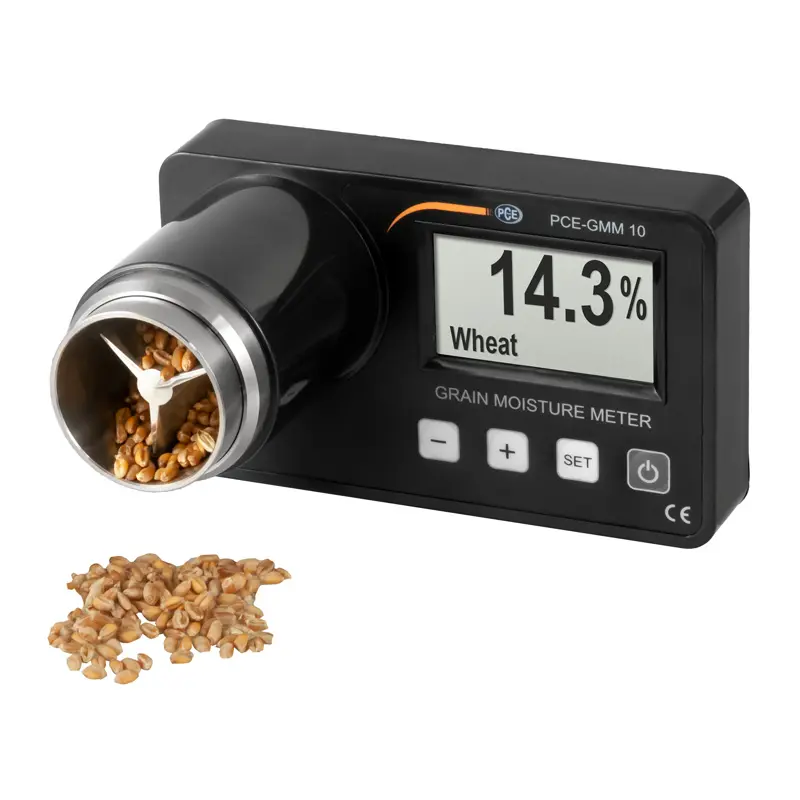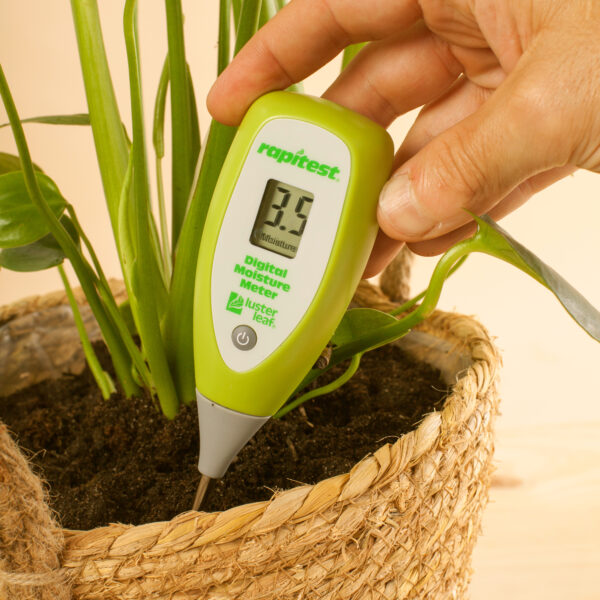Moisture Meter Reviews: Comparing the Best Models for Specialist and Do It Yourself Use
Moisture Meter Reviews: Comparing the Best Models for Specialist and Do It Yourself Use
Blog Article
The Ultimate Guide to Moisture Meters: A Comprehensive Summary and How They Can Conserve You Cash
In the realm of structure maintenance, building, and various sectors, the value of precisely gauging moisture degrees can not be overstated. Dampness meters function as essential devices in finding and keeping an eye on moisture content in products, aiding in protecting against expensive problems and guaranteeing the quality of items. Understanding the nuances of various kinds of wetness meters, their applications, and the possible cost-saving benefits they supply can be a game-changer for services and professionals alike. Finding how these tools can not only enhance procedures however additionally contribute to economic savings is a trip worth embarking on.
Types of Moisture Meters
Different kinds of wetness meters are available for different applications in different markets. One common kind is the pin-type dampness meter, which gauges the electrical resistance between two pins placed right into a product. This kind is ideal for timber, drywall, and various other building materials. Pinless wetness meters, on the other hand, use electromagnetic sensor plates to scan a larger area without causing damage to the material's surface. Moisture Meter. These meters are optimal for swiftly examining dampness degrees in huge locations such as floors and wall surfaces.

Infrared moisture meters determine the thermal residential properties of a material to identify its moisture web content non-invasively, making them useful for applications where pin or pinless meters may not be suitable. Comprehending the different types of moisture meters available can assist industries choose the most appropriate device for their particular wetness dimension needs.

Benefits of Making Use Of Moisture Meters
Wetness meters use important advantages in precisely monitoring and evaluating wetness degrees in varied products and atmospheres. One of the key advantages of making use of moisture meters is the prevention of potential damage triggered by excess wetness.
Furthermore, utilizing dampness meters can lead to enhanced power efficiency. In agricultural setups, moisture meters play a vital role in enhancing plant yields by allowing farmers to check soil wetness degrees and make informed irrigation choices.
Just How to Choose the Right Wetness Meter
Picking the suitable wetness meter involves thinking about vital aspects such as product compatibility, measurement array, and calibration accuracy. When picking a dampness meter, it's important to make certain that the meter is suitable for the details product you will be screening. Various materials have differing electrical homes that can influence dampness readings, so choosing a meter made for your material is vital for accurate outcomes. In addition, take into consideration the measurement variety of the dampness meter. Guarantee that the meter can identify moisture degrees within the array required for your applications. Calibration accuracy is an additional important element to maintain in mind. Select a dampness meter with trusted calibration to make sure specific and consistent analyses. Some meters may call for regular calibration adjustments, so check this site out understanding the calibration process is very important. By very carefully assessing these elements, you can select a moisture meter that meets your demands and gives precise wetness measurements for your tasks.
Proper Strategies for Wetness Meter Use

Price Savings Through Moisture Meter Applications
Exactly how can the critical application of wetness meters result in considerable cost savings throughout numerous markets? Wetness meters play a vital function in cost financial savings by protecting against prospective damage and guaranteeing quality control in various fields. In the farming market, moisture meters help in figuring out the optimum time for gathering crops, protecting against excess or over-drying wetness that can impact the last item's high quality. This accurate monitoring aids farmers prevent unnecessary losses and optimize their return.
In a similar way, in construction, wetness meters help stop costly problems by finding wetness levels in building materials, such as wood or concrete, which can lead to architectural issues if not resolved quickly. By recognizing problem areas beforehand, specialists can take corrective procedures to avoid Find Out More considerable repair work or substitutes, inevitably saving time and cash.
Additionally, in the food handling sector, moisture meters are crucial for monitoring product top quality and making certain conformity with safety and security regulations. By properly measuring wetness material in food, producers can protect against perishing, maintain quality, and decrease waste, resulting in considerable price financial savings. On the whole, the strategic application of moisture meters is a valuable investment that can lead to substantial cost reductions and boosted performance throughout numerous industries.
Final Thought
To conclude, wetness meters are important tools for measuring and detecting moisture degrees in various materials. By utilizing the right dampness meter and adhering to appropriate methods, users can effectively protect against pricey damages brought on by excess dampness. Buying a high quality moisture meter can bring about considerable cost financial savings in the lengthy run by determining potential concerns early and enabling punctual remediation. Ultimately, dampness meters are vital instruments for maintaining the stability and longevity of frameworks and materials.
Wetness meters offer as indispensable devices in discovering and monitoring moisture material in products, aiding in protecting against expensive problems and guaranteeing the top quality of products. Infrared wetness meters measure the thermal residential or commercial properties of a material to identify its moisture material non-invasively, making them valuable for applications where pin or pinless meters may not be ideal.Moisture meters use indispensable benefits in accurately examining and checking wetness degrees in diverse materials and atmospheres. In farming settings, moisture meters play a vital role in enhancing plant yields by enabling farmers to check dirt dampness levels and make notified irrigation decisions.In final thought, dampness meters are valuable tools for finding and gauging moisture degrees in numerous products.
Report this page